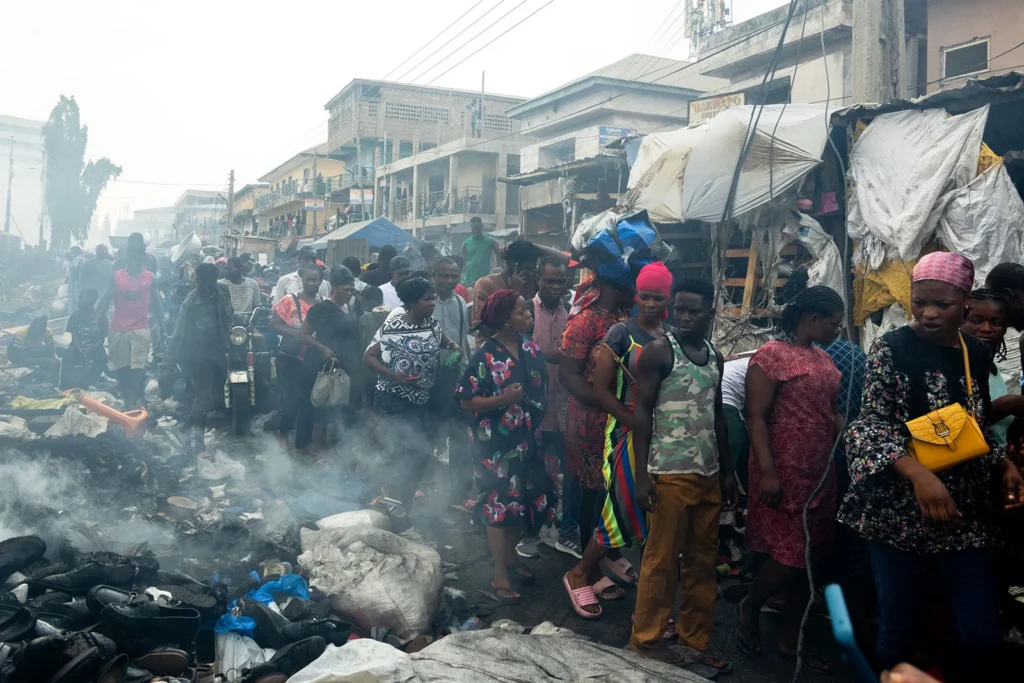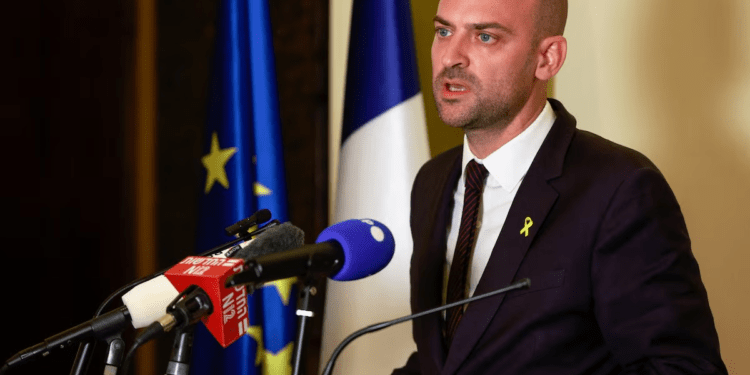Insurance professional Ernest Frimpong has raised concerns over the lack of proper planning and preventive measures in the rebuilding of Kantamanto Market following the recent fire outbreak.
He has criticized the manner in which traders rushed to reconstruct the market, warning that the absence of structured planning could expose the area to future fire disasters.
“I believe that the rebuilding of the market should have been coordinated and more structured to make sure that we don’t have the situation that we had before the fire”
Ernest Frimpong, Insurance Professional
He questioned how traders managed to rebuild their stalls so quickly without formal approval, pointing to possible failures in leadership.

“They thought someone was selling or buying the land, so they had to rebuild but, you know, in Ghana, you cannot just build unless approval has been given.
“So how did they get approval to build the structures again? It means that there’s some leadership failure over there that we need to address”
Ernest Frimpong, Insurance Professional
The concern, he said, was not only about the rapid reconstruction but also the failure to incorporate fire-resistant structures or safety measures that could prevent future disasters.
“As a country, we need to come together to make sure that the right thing is done going forward so that we don’t come back to the same situation”
Ernest Frimpong, Insurance Professional
Mandatory Insurance in Markets
Beyond infrastructure, another glaring issue remains insurance coverage.
Although many traders were left without financial protection after the fire, there is still no policy in place requiring market vendors to insure their businesses.
“The owners of the properties or the land should add insurance as part of the rental arrangement. They can even arrange for the traders to pay in installments so that they do not feel the full burden of premiums at once”
Ernest Frimpong, Insurance Professional
Frimpong proposed that such inclusion of insurance in rental agreements by authorities, will ensure traders are automatically covered in case of any disaster like fire outbreaks.
He emphasized the role of microinsurance, an approach that allows small-scale traders to access affordable coverage in manageable payments.
“The insurance industry needs to be brought into this discussion, and we need to engage with them to work together. That way, we solve this situation and ensure we don’t come back to it”
Ernest Frimpong, Insurance Professional
Currently, Ghana’s market traders operate with little to no insurance, leaving them vulnerable whenever disasters strike.
While insurance companies offer microinsurance packages tailored for small businesses, uptake has remained extremely low due to lack of awareness and trust in the system, he explained.

Government’s Role in Fire Prevention
While financial protection is critical, the core issue remains fire prevention.
Deputy Minister of Defence Ebenezer Terlabi has called for the establishment of fire service desks within Ghana’s markets to ensure immediate response in case of an outbreak.
“We have a duty, and I believe that the district assemblies, in conjunction with the market women and the chiefs, would have to sit down.
“Because at the end of the day, the government built a market – put in all the measures, and somebody must take care of the market”
Ebenezer Terlabi, Deputy Minister of Defence
He pointed out that market fires continue to cause massive economic losses, yet the necessary infrastructure to prevent them remains nonexistent in most trading hubs.
“We are coming out with a lot of interventions, which we think would help in at least reducing fire outbreaks, especially in our markets,” he said.
One of the key issues, Terlabi noted, is the absence of fire personnel in markets after business hours, making it difficult to contain fires before they spread.
“The market women will be fighting with you because even fire hydrants are being covered.
“They need to make some space for fire officers to at least have a desk so that in case of anything, they can be advised, and they can also preempt large outbreaks”
Ebenezer Terlabi, Deputy Minister of Defence

A Broader Pattern
Market fires have become a recurring crisis in Ghana, with similar incidents recorded in Makola, Kejetia, and other major trading centers.
Despite repeated calls for reform, efforts to implement fire-resistant designs, strict electrical regulations, and comprehensive insurance coverage have remained largely ineffective.
Kantamanto’s situation reflects a broader failure in urban management, where short-term fixes are often prioritized over long-term preventive solutions.
With the country’s informal sector heavily dependent on market trade, the lack of structured interventions poses a major economic risk as Ernest Frimpong puts it.
Going forward, there are increasing calls for authorities to enforce strict rebuilding standards, introduce mandatory insurance policies, and implement fire safety protocols.
Without these measures, traders risk facing another cycle of devastation, while the government will continue to bear the cost of a crisis that could have been prevented.
READ MORE: US-Ghana Trade Faces Uncertainty Amid 10% Tariff Imposition























